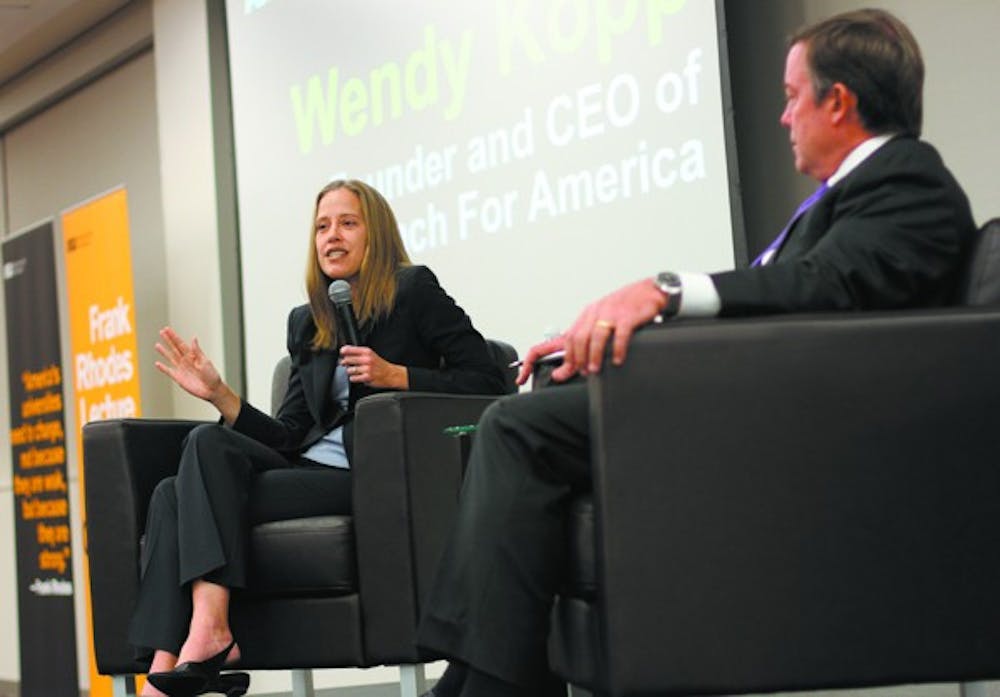Teach for America founder Wendy Kopp discussed the organization’s philosophies on improving school districts around America with ASU President Michael Crow Tuesday.
Kopp was the first guest speaker of the Frank Rhodes Lecture Series, a new series to help advance Crow’s vision of a New American University.
“We can create organizational change that makes it much more possible to meet the needs of kids and put them on a level playing field,” Kopp said.
Teach for America was created in 1990 and recruits recent college graduates to teach for two years in economically underprivileged areas.
Kopp said Teach for America’s mission is to give equal opportunity to children from all economic circumstances.
Kopp said the disparity between children growing up in a privileged household are far more likely to graduate college than those coming from a poor background.
Around 8 percent of children from low-income backgrounds graduate college by the time they are 24 years old while 80 percent of high-income children graduate, she said.
Kopp compared the lack of focus on the problems in the educational system to ignoring a medical epidemic. She called problems within Arizona’s school system “immense.”
Arizona is ranked last in the country for sending high school graduates to college, according to Teach for America’s website.
“If the educational crisis we are talking about was a health epidemic that was taking the lives of a significant fraction of our kids, what would we do? We would stop everything and get everyone to focus on this problem,” Kopp said.
Crow said he has learned several lessons from Kopp, including how innovation isn’t always about inventing a new solution.
“Innovation is not just about deriving the new idea, innovation is sometimes about figuring out about how to get back to the root,” Crow said.
Kopp said the remedy to the school system’s problems is not to “lurch from one silver bullet solution to another,” but to build a “critical mass” of leadership.
She said the solution is not to take small steps, but to fully commit to fixing schools in every community.
“If you just think about the magnitude of the problem, we’re all going to be dead by the time we solve it until we decide a few percentage points increase in achievement levels doesn’t get us anywhere when we have communities sending more kids into prison than into college,” Kopp said.
Reach the reporter at brennan.j.smith@asu.edu Click here to subscribe to the daily State Press newsletter.





